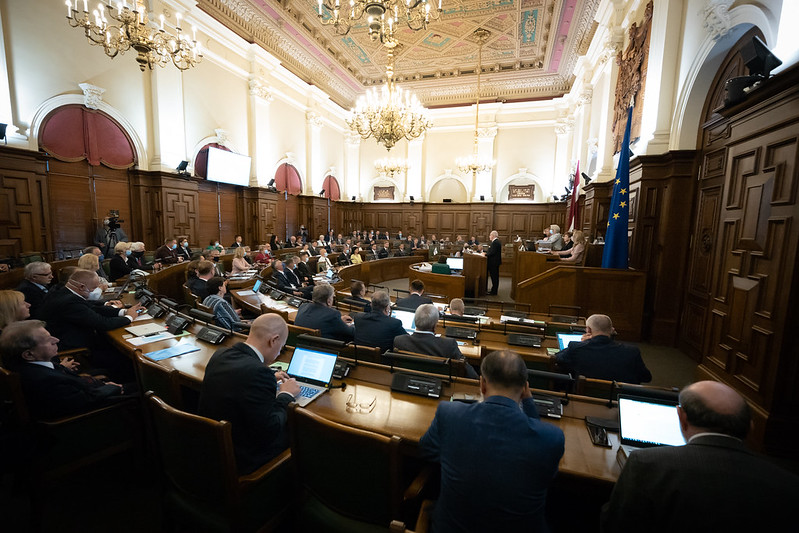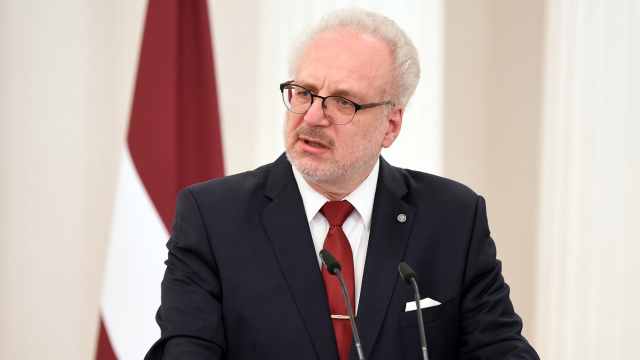He opened by urging Saeima deputies to think in a long-term, sustainable manner, referencing the year 2030 as a touchstone.
"A good starting point for sustainability goals is 10 years, so 2030. It's not too far away to indulge in dreams, yet not too close to get lost in tactical details," he said.
Levits then listed various areas of concern including completion of regional administrative reforms and his own pet project, a draft law defining Latvian historical lands, which he promised to deliver to Saeima "soon". The President has the right to propose legislation to the Saeima, though the Saeima has no obligation to pass it.
"The aim of the draft law is to create a far-sighted state policy for the preservation of the diversity of Latvian-ness and the sustainable development of the cultural and historical environment. By strengthening our sense of belonging to local communities, local cultural spaces and Latvian historical lands, we strengthen our common national identity," Levits said.
Next he called for a targeted demographic and family policy to tackle population decline and likely labor shortages, citing Eurostat figures predicting that the population will fall by 200,000 by 2030, and that by 2050 there will be only 1.4 million inhabitants in Latvia.
Moving on, Levits commended ongoing efforts to strengthen public media (of which LSM is part) and high-quality media in general before landing on what is perhaps a less obvious topic: the dangers posed by algorithms.
"I especially want to highlight the problems of algorithms in both the public and private sectors," the President said.
"Algorithms do not have legal norms, and therefore they must not determine what we can and cannot do. Algorithms must not restrict people's rights and opportunities to live freely, within the framework of the law, to decide on their actions freely, unmonitored and unreported. The application of algorithms is not just a technical issue, but a central, political, legal and constitutional issue. And we will have to discuss this in the coming years to ensure that digital development does not restrict people," Levits said.
"Digitization can be a means of improving our quality of life. But it can also become a weapon against us. This risky dimension of digitization must be duly taken into account in the preparation of both e-government and other digitization projects," he said.
After a mention of ongoing higher education reforms, President Levits alighted on another of his personal enthusiasms, the possible introduction of a French-style 'State Council' to review legislation before it is passed by Saeima. He said there was "urgent need" to improve the quality of legislation and that the creation of a State Council was the way to do it.
"This would greatly improve the quality of legislation and promote the development and sustainability of our country," he said, though he stopped short of saying if he might submit more draft legislation to Saeima on the matter.
He wound up his speech with strong backing for democratic forces in Belarus, saying: "It is our moral duty to support the non-violent resistance of Belarusian civil society, because the very basic principle of democracy, fair elections, has been violated."




























